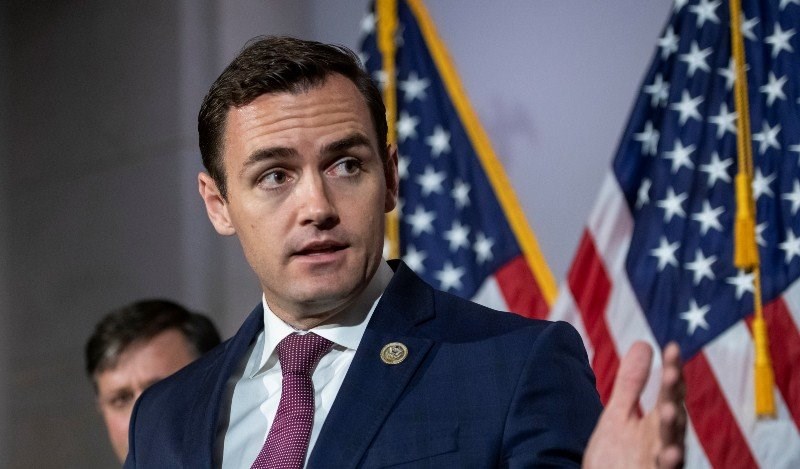US Rep: War in Taiwan would be protracted conflict
In order for the US to avoid a disastrous defeat in Taiwan, ground-launched missiles represent Washington's best bet, according to the Republican representative.
-

Republican Representative, Mike Gallagher.
Any potential war over Taiwan would be a protracted conflict that would require both the US and Taiwan to acquire large numbers of munitions to win it, according to Mike Gallagher on Monday.
"We have to assume that any war over Taiwan would be a protracted conflict which not only means American forces will go Winchester rapidly but Taiwan itself will need large stores of munitions pre-positioned and ready to replace losses ahead of time," Gallagher said, during an event for the Center for Strategic and Budgetary Assessments.
"And, in my opinion, that only magnifies the need for a massive pre-war expansion in munitions productions [in the United States]."
He added that because now the US is no longer a party to the Intermediate-Range Nuclear Forces Treaty (INF), Washington does not need to withhold itself from massing the amount of firepower that would be needed to deter - or, if necessary, defeat a "Chinese invasion" of Taiwan. Hence, the US has an opportunity to "reestablish conventional deterrence in the Indo-Pacific in the critical theater," Gallagher added.
In order for the US to avoid a disastrous defeat in Taiwan, ground-launched missiles represent Washington's best bet, according to the Republican representative.
On Sunday, US President Joe Biden made again a statement that the White House apologized for two months back: The US forces would defend Taiwan in case of a Chinese attack.
In a statement to Sputnik on Monday, the Chinese Embassy in the US said that China has strong dissatisfaction and opposition to Biden's ongoing statements that the US would defend Taiwan from Chinese forces.
Read next: China urges the US to stop playing the 'Taiwan card'
"China expresses strong dissatisfaction and firm opposition to the remarks by the US side. The US president has made such remarks several times and every time the administration would clarify that there is no change in its policy on Taiwan," said Liu Pengyu, Chinese Embassy spokesperson.
Matters which have to do with Taiwan are purely China's internal affair that requires no foreign interference, said Liu, asserting that there is no room for compromise or concession when it comes to Chinese sovereignty and territorial integrity.
Furthermore, with stress on zero-interference and territorial integrity, Beijing urges the US to stick to its commitments and abide by the One-China principle, in addition to the three Sino-US joint communique that form the foundations for Chinese-US bilateral relations.
During Sunday's interview, Biden said that he and Chinese President Xi Jinping both agree with the One China policy. However, the US President also claimed that Taiwan forms its own opinion with respect to pursuing independence but the United States is not encouraging it to be independent.
CBS News followed up on Biden's interview and asked the White House about the President's remarks regarding defending Taiwan. The White House replied by saying again that the United States' policy on Taiwan has not changed.
Washington backs bill to treat Taiwan as 'equivalent to foreign govts'
This back-and-forth comes after the US Senate Foreign Relations Committee pushed forward last Thursday the Taiwan Policy Act of 2022, which will provide Taiwan with $4.5 billion in security aid and a $2 billion loan guarantee for the purchase of military equipment.
The bill will provide Taiwan with aid over four years, in addition to designating the island as a "Major Non-NATO ally."
In addition, the legislation will also direct the US government to engage with the Taiwanese government as a legitimate representative of the population on the island, prohibiting restrictions and limits regarding engagements between US officials and their Taiwanese counterparts.

 4 Min Read
4 Min Read








